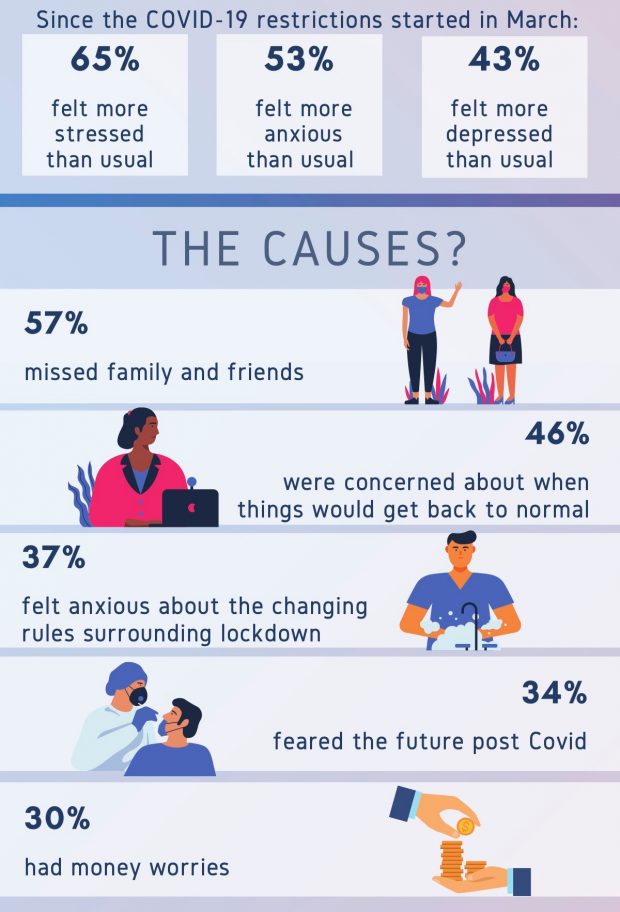Highlighting the importance of stress in the workplace is critical in the current situation. Many of us are working in new ways, away from office and online, and the impact stress has on us all is dramatically increased. Those in the Government Science and Engineering Profession are all working together to help the public in so many ways, and it is important we look after each other.

The article below, which was originally published in November 2020, but has been updated for Stress Awareness Month this year, is still relevant to the pandemic and our altered ways of working. A key take-away being : be kind to yourself and your team and keep up the amazing work.
The Covid-19 pandemic has impacted all aspects of life. At times like this, and as part of Stress Awareness Month, it is more important than ever to be aware of stress and the effects it can have upon us.
Stress can be caused by many different events in everyday life, these can include looming deadlines, lack of control, or worrying about forthcoming change.
Stress is a normal facet of everyday life, however too much stress can lead to anxiety and depression, as well as other mental symptoms (such as difficulty concentrating or constant worrying), or physical symptoms (such as chest pains or headaches). Stress can also lead to changes in behaviour, such as drinking more or eating less. For further information and support, Every mind matters, run by Public Health England (PHE) and the NHS, has a range of resources on stress and how to cope with it.
Behavioural Scientists at PHE have been involved in the development of interventions to help reduce stress. For example, they provided expert advice to aid the production of a free Psychological First Aid training course, developed by PHE, aimed at helping people take care of their own mental health as well as helping them to support others. Researchers have also produced recommendations for the development of interventions to manage stress in emergency services.
Managers can play a key role in helping reduce stress in the workplace and the Health and Safety Executive has produced guidance for mangers to help them reduce stress in their employees. Research by PHE has also highlighted the benefits of mental health awareness training for managers, finding that such training can have positive implications in terms of awareness of mental ill-health at work and confidence in addressing mental ill-health among employees.
In terms of the role that behavioural science can play in reducing stress, Professor Richard Amlôt, Head of Behavioural Science at PHE commented that “Our teams and partners have sought to understand the new impacts and stresses associated with the Covid-19 pandemic. By understanding these challenges, we can work to identify ways to support workers, our families and communities. Looking at these new challenges through a behavioural science lens can help us to identify actionable insights to guide policy makers and managers.”
By William Nicholson and Dale Weston (Behavioural scientists, PHE)
Sign up to the GSE blog to receive an email when a new blog is published and keep up to date with the work of the GSE Profession.







